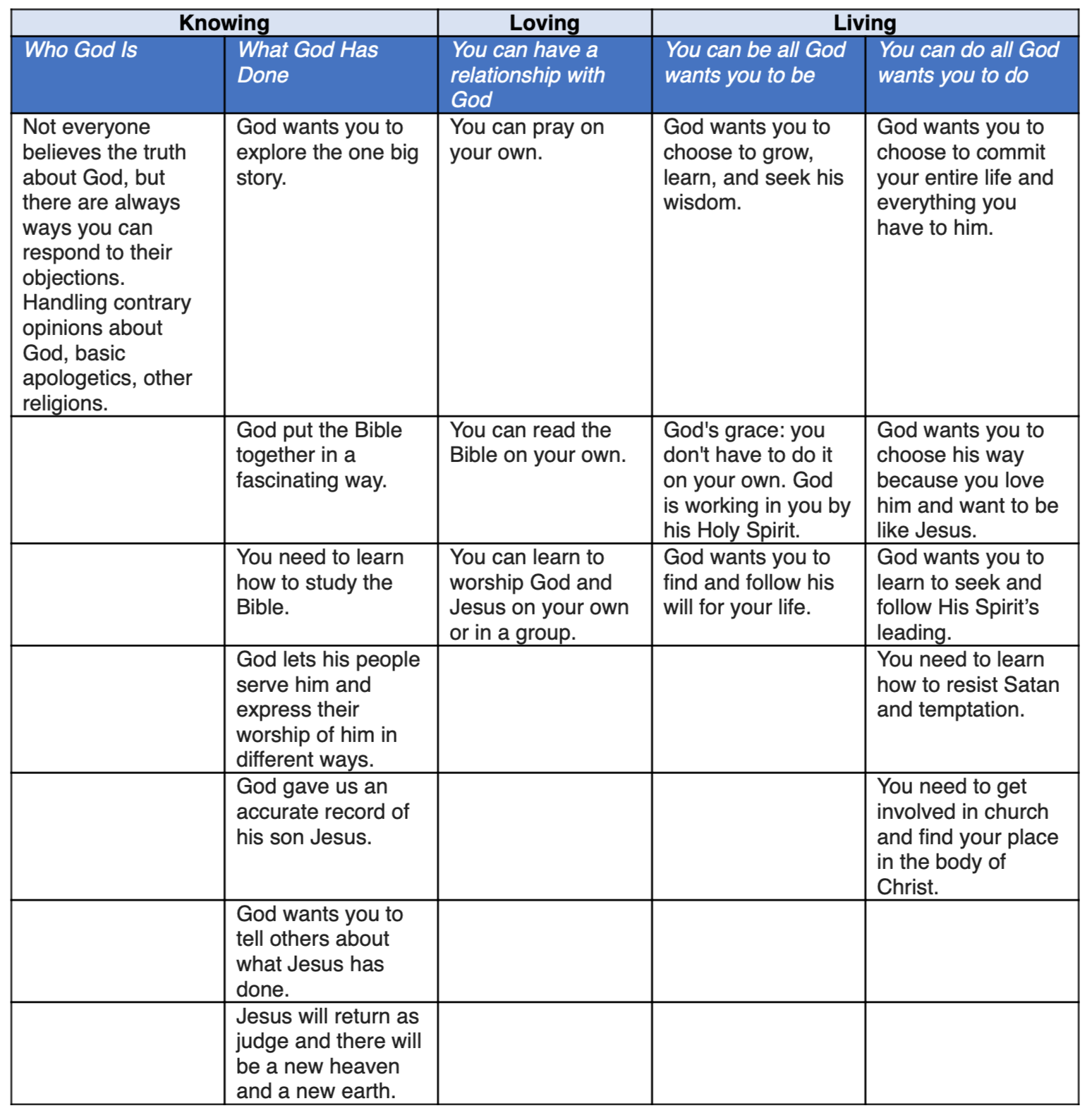Spiritual Training in Kids 10-12 Years of Age
What can kids understand in Spiritual Training when they are between 10-12 years of age?
For Easter, we came together, as most families do, for food and fellowship. So, having most of the grandkids there, I put together a family night. Eggs were filled with different symbols of the Easter Story; a rock, an empty egg, a cross, …. The normal egg hunt followed. But then we sat down with all the kids and discussed each egg and what it represented out of the Easter story. Singling out the older kids 10-12, I brought them to the table and challenged them to put the symbols from the eggs into proper order – for the goal was to impress upon them the “Story” by encouraging them to identify the “Story Line.” Thus, I was setting them up to understand and be able to share the Gospel Message. It was fascinating to watch them discuss and move the elements around. And, at this age group, they can and should understand the story and story line of the salvation message.
In the book Spiritual Growth of Children, published in 2000 by Focus on the Family under the Heritage Builders Brand, the authors state: children this age need to learn to submit to God. This is a crucial time as they learn what the Bible says about how they should live, what choices they need to make, and what God expects of them. They are moving into greater autonomy in their spiritual lives. These children are moving from dependence to independence.
The authors have laid out a chart to show what truths about God they can be ready to learn at 7-12. Here is an excerpt from the book:
1- The “knowing” columns contain truths about their faith, God, and what he does.
2- The “loving” column is about developing their relationship with God
3- The “living” columns are about living out in their person and actions what God wants them to be.
In each of these three areas, topics and concepts are listed that they can grasp. As you become intentional, your children will learn all things listed here. Remember they're like sponges and they're ready to learn.
A couple of key activities you can use to teach these principles include:
1 – Encourage them to have a quiet time with an age-appropriate devotional – you can ask there youth leader for suggestions. Instruct them to read the devotional and then pray the biblical principle for their life.
2- Teach them how to use the Bible to find answers to their questions. Today’s technology world makes this really easy and by simply pointing them to resources, they can become very efficient and effective in “using” their bibles. Steps might include:
a. Identify an issue personally dealing with: like selfishness
b. Ask Google for verses that deal with selfishness or use a contemporary concordance
c. Look up the verses and read the commentaries to understand application/ or use gotquestions.org to ask a question, if you do not know the “root issue”
3 – Ensure they are part of a Bible Teaching Youth group focused on teaching Biblical principles, not just social interactions. Ask and discuss what they thought of what the topic was for the week, when they get home. Be quick to take them to the Bible for greater understanding.
4 - Do Family Nights based on “Family Night Tool Chest: Christian Character qualities or Wisdom Life Skills (Available at: https://www.heritagebuildersglobal.com/family-resources)
And always remember: Deut 6:4-7 says: 4 “Hear, O Israel: The Lord our God, the Lord is one.[a] 5 You shall love the Lord your God with all your heart and with all your soul and with all your might. 6 And these words that I command you today shall be on your heart. 7 You shall teach them diligently to your children, and shall talk of them when you sit in your house, and when you walk by the way, and when you lie down, and when you rise.


